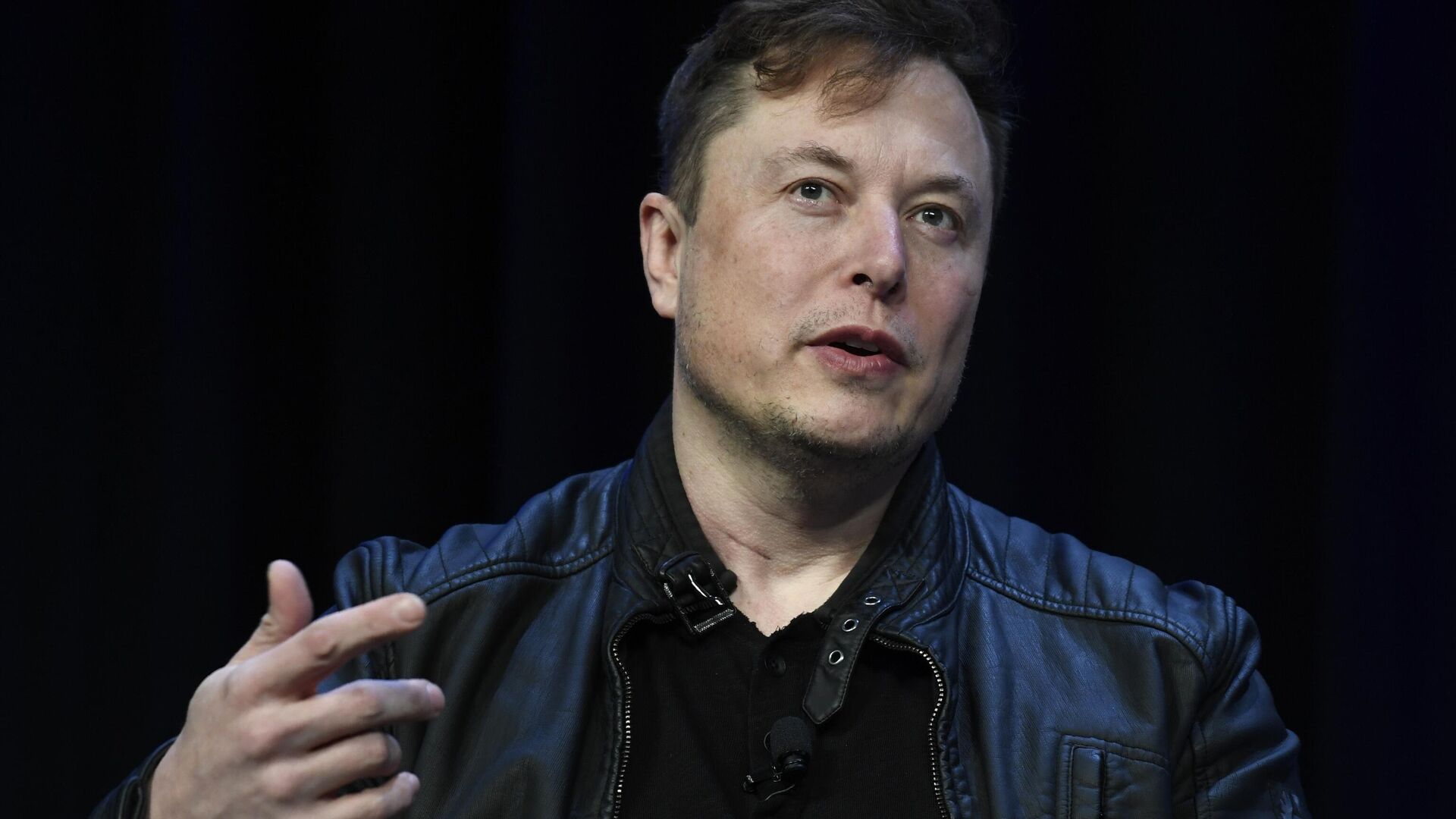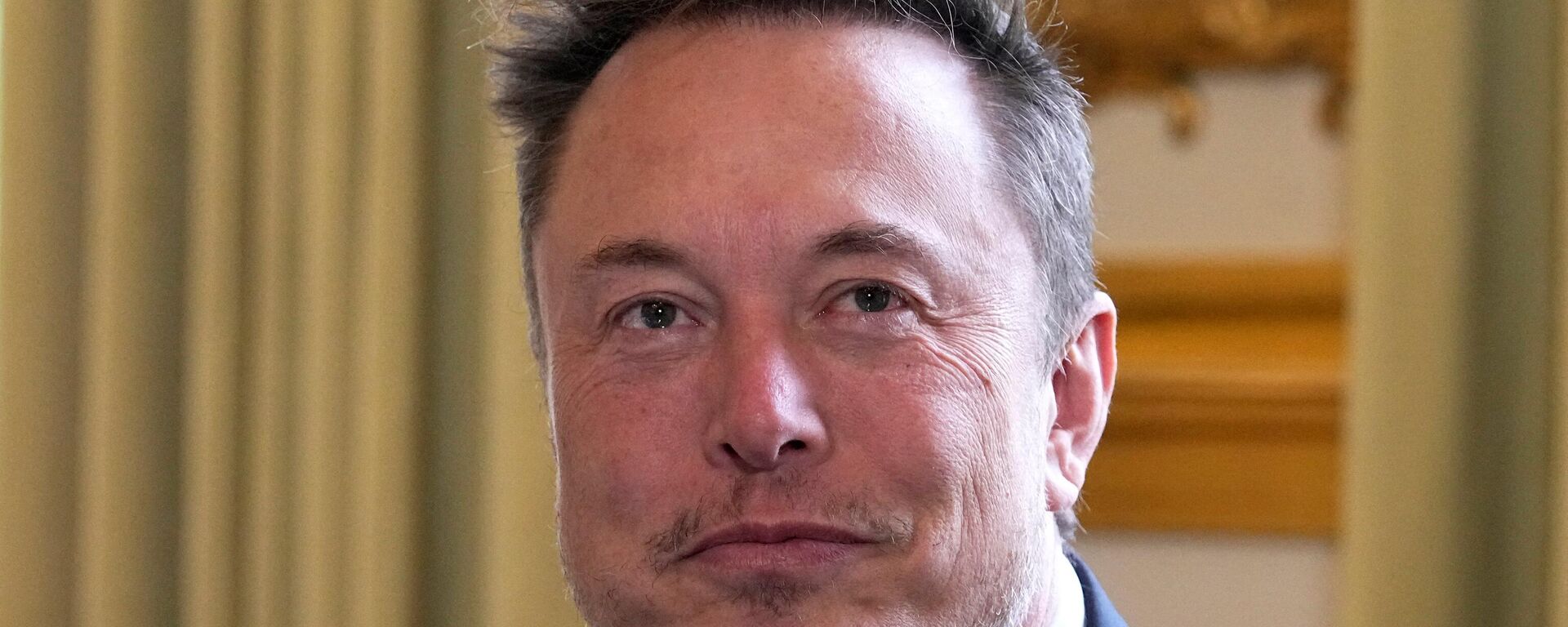https://sputnikglobe.com/20230531/musks-beijing-visit-could-lead-to-better-understanding-of-us-china-diplomatic-nuances-1110821851.html
Musk's Beijing Visit Could Lead to 'Better Understanding' of US-China Diplomacy
Musk's Beijing Visit Could Lead to 'Better Understanding' of US-China Diplomacy
Sputnik International
Americans talk big about “standing up” to China and isolating the massive socialist state, but much of the nuance is lost on panicky business leaders trying to read the tea leaves of international trade and protect profit margins.
2023-05-31T16:17+0000
2023-05-31T16:17+0000
2023-05-31T19:21+0000
analysis
elon musk
qin gang
china
us-china relations
economic decoupling
https://cdn1.img.sputnikglobe.com/img/07e7/04/0c/1109375196_0:160:3072:1888_1920x0_80_0_0_af8506b3c7e71e815539013eaf0e9619.jpg
On Tuesday, American industrialist Elon Musk arrived in China for meetings with top trade officials as well as Qin Gang, the Chinese foreign minister and former ambassador to the United States. The visit is intended to shore up his business relations with the economic superpower, including expanding operations by Tesla, the electric vehicle maker that he owns, in what has become the world's largest EV market.However, Musk also vocally denounced the US government’s efforts to force a "decoupling" of the US and Chinese economies, including by pressuring American companies to end their operations in China and shift their supply sources outside of China.Thomas W. Pauken II, the author of "US vs China: From Trade War to Reciprocal Deal," a consultant on Asia-Pacific affairs, and geopolitical commentator, told Sputnik on Wednesday that while some companies receiving subsidies from the US are pursuing "decoupling" because it now profits them to do so, others are pulling out of China because they see the writing on the wall and fear a catastrophic severing of relations is brewing. Meanwhile, businessmen like Musk see profit and opportunity in the Chinese market, so they are pursuing their interests, too.Musk and his like-minded peers, Pauken said, are looking to continue doing business in China because it’s cheaper and more efficient than elsewhere.Those points make up, in large part, what Pauken said he expected to be the substance of Musk’s talks with Chinese business leaders. Another issue might be Twitter, which Musk bought last November and which is banned in China. Pauken suggested Musk might seek to pressure Beijing to look at the social media giant differently - a way that perhaps might lead to its unbanning.Pauken said that the threat of forced decoupling in the future is pushing a lot of high-tech companies to begin the process now, fearing that "if they're too reliant on China" they could find themselves "in a serious problem where we could go bankrupt from that overreliance.""And then, at the same time, you have a lot of problems [with] communications between … the US and China in order to understand the real interpretation of such a messaging. And it's a real challenge, because there's not really much direct talk and it's possible that when it comes to Elon Musk being in China, he may get a better interpretation of what China's understanding is. And it's possible that the American companies will approach Elon Musk to ask what he talked about with China," Pauken said.Turning to Chinese Defense Minister Li Shangfu’s refusal to meet with Pentagon chief Lloyd Austin, which hit headlines on Wednesday, Pauken noted that Li is still on a US sanctions list for a 2018 purchase of Russian-made S-400 air defense systems by China.Similarly, he noted that "in order for China and the US to improve their relations, you have to resolve the economic and business issues first, and then that can create the right platform to have an improvement in the diplomatic issues related to military and political diplomatic issues."
https://sputnikglobe.com/20230531/elon-musk-meets-with-chinas-commerce-industry-ministry-chiefs-in-beijing-1110811430.html
https://sputnikglobe.com/20230522/beijing-banning-micron-means-china-has-mastered-chip-making-1110523565.html
china
Sputnik International
feedback@sputniknews.com
+74956456601
MIA „Rossiya Segodnya“
2023
News
en_EN
Sputnik International
feedback@sputniknews.com
+74956456601
MIA „Rossiya Segodnya“
Sputnik International
feedback@sputniknews.com
+74956456601
MIA „Rossiya Segodnya“
elon musk; china; us; li shangfu; decoupling; tesla
elon musk; china; us; li shangfu; decoupling; tesla
Musk's Beijing Visit Could Lead to 'Better Understanding' of US-China Diplomacy
16:17 GMT 31.05.2023 (Updated: 19:21 GMT 31.05.2023) American officials talk big about "standing up" to China and isolating the massive socialist state diplomatically and economically, but according to one Asia-Pacific affairs expert, much of the nuance of that posturing is lost on panicky business leaders trying to read the tea leaves of international trade and protect their profit margins.
On Tuesday, American industrialist Elon Musk arrived in China for meetings with
top trade officials as well as Qin Gang, the Chinese foreign minister and former ambassador to the United States. The visit is intended to shore up his business relations with the economic superpower, including expanding operations by Tesla, the electric vehicle maker that he owns, in what has become the world's largest EV market.
However, Musk also
vocally denounced the US government’s efforts to force a "decoupling" of the US and Chinese economies, including by pressuring American companies to end their operations in China and shift their supply sources outside of China.
Thomas W. Pauken II, the author of "US vs China: From Trade War to Reciprocal Deal," a consultant on Asia-Pacific affairs, and geopolitical commentator, told Sputnik on Wednesday that while some companies receiving subsidies from the US are pursuing "decoupling" because it now profits them to do so, others are pulling out of China because they see the writing on the wall and fear a catastrophic severing of relations is brewing. Meanwhile, businessmen like Musk see profit and opportunity in the Chinese market, so they are pursuing their interests, too.
"If your business has to rely on Chinese supply chains, obviously you're going to agree with Musk. But what's happening right now is that there are some companies that are trying to decouple from Chinese supply chains and you have the CHIPS Act and the Inflation Reduction Act, and these companies that are following that decoupling are trying to profit by getting subsidies from the US government. So, if you hear of businesses supporting decoupling, the chances are they're profiting from it."
Musk and his like-minded peers, Pauken said, are looking to continue doing business in China because it’s cheaper and more efficient than elsewhere.
"When you have to change your supply chains from different countries, it is a disruption of your manufacturing for at least a few months. So, Musk obviously sees the business potential and realizes that staying with China is the preferred option from a business standpoint here."
Those points make up, in large part, what Pauken said he expected to be the substance of Musk’s talks with Chinese business leaders. Another issue might be Twitter, which Musk bought last November and which is banned in China. Pauken suggested Musk might seek to pressure Beijing to look at the social media giant differently - a way that perhaps might lead to its unbanning.
"Obviously, Elon Musk is a very successful businessman. He is going to look at this mainly from a business angle, whereas maybe the Chinese government will see it more as a political angle to encourage other businesses to come into China, or at least to encourage the foreign companies to maintain their supply chains here. So it will be open to interpretation on how people interpret China's actions and how people interpret Musk's actions. But just looking at it from a simple perspective, I think that Musk has different objectives than maybe what the Chinese government has in their objectives. But in one sense there's still going to be some type of alignment, because Musk and China do benefit from working together."
Pauken said that the threat of forced decoupling in the future is pushing a lot of high-tech companies to begin the process now, fearing that "if they're too reliant on China" they could find themselves "in a serious problem where we could go bankrupt from that overreliance."
"The main problem is that sometimes when you start talking about decoupling, that accelerates to [actually] decoupling. This is a problem that US diplomats and US companies are having trouble comprehending or understanding. For them, it's possible they're just talking about how they're worried this might happen. But according to whether it's possible, with China's interpretation, the mere fact that you're talking about, it means you want it to happen. This in a sense could create some more conflict."
"And then, at the same time, you have a lot of problems [with] communications between … the US and China in order to understand the real interpretation of such a messaging. And it's a real challenge, because there's not really much direct talk and it's possible that when it comes to Elon Musk being in China, he may get a better interpretation of what China's understanding is. And it's possible that the American companies will approach Elon Musk to ask what he talked about with China," Pauken said.
Turning to Chinese Defense Minister Li Shangfu’s refusal to meet with Pentagon chief Lloyd Austin, which hit headlines on Wednesday, Pauken noted that Li is still on a US sanctions list for a 2018 purchase of Russian-made S-400 air defense systems by China.
“China made it very clear that if these sanctions are lifted, they can have talks,” he pointed out. “When you really think about it, just from a very simple logical standpoint: if a person is being sanctioned by a certain government, that would imply that the person being sanctioned is someone that they [Americans] should not talk to. It's perfectly understandable that China would make the request that these sanctions are lifted and on that account and then they would have talks.”
Similarly, he noted that "in order for China and the US to improve their relations, you have to resolve the economic and business issues first, and then that can create the right platform to have an improvement in the diplomatic issues related to military and political diplomatic issues."




